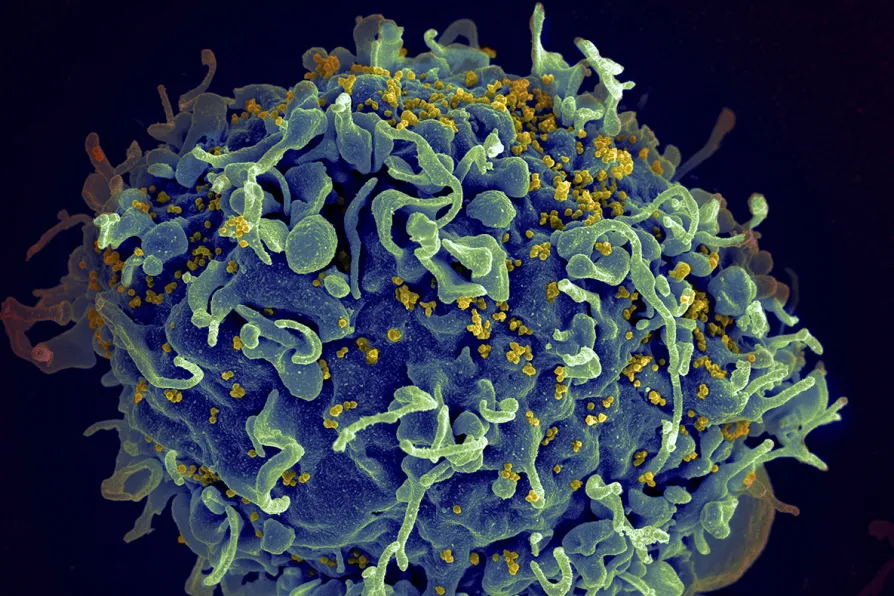
 This colourised electron microscope image provided by the US National Institutes of Health shows a human T cell, in blue, under attack by HIV, in yellow, the virus that causes Aids
This colourised electron microscope image provided by the US National Institutes of Health shows a human T cell, in blue, under attack by HIV, in yellow, the virus that causes Aids
THE loss of United States funding for aid programmes has “already destabilised supply chains, led to the closure of health facilities, left thousands of health clinics without staff and set back prevention programmes,” according to a new United Nations report.
Published on Thursday, the UNAIDS report says the sudden withdrawal of US money has also “disrupted HIV testing efforts and forced many community organisations to reduce or halt their HIV activities.”
The Trump administration’s decision has caused a “systemic shock,” the UN agency says, adding that failure to replace the funding could lead to more than four million Aids-related deaths and six million more HIV infections by 2029.
UNAIDS also said that it feared other major donors would scale back their support, reversing decades of progress against Aids worldwide, and that the strong multilateral co-operation had been put in jeopardy by wars, geopolitical shifts and climate change.
The $4 billion (around £3bn) that the US pledged for the global HIV response for 2025 disappeared virtually overnight in January, when US President Donald Trump ordered that all foreign aid be suspended and later ordered the closure of the US aid agency.
In 2024, there were about 630,000 Aids-related deaths worldwide, per a UNAIDS estimate — the figure has remained about the same since 2022 after peaking at about two million deaths in 2004.
Even before the US funding cuts, progress against curbing HIV was uneven. UNAIDS said that half of all new infections are in sub-Saharan Africa.
Tom Ellman of Doctors Without Borders (MSF) said that, while some poorer countries were now seeking to fund more of their own HIV programmes, it would be impossible to fill the gap left by the US.
“There’s nothing we can do that will protect these countries from the sudden, vicious withdrawal of support from the US,” said Mr Ellman, who heads the charity’s South Africa medical unit.













